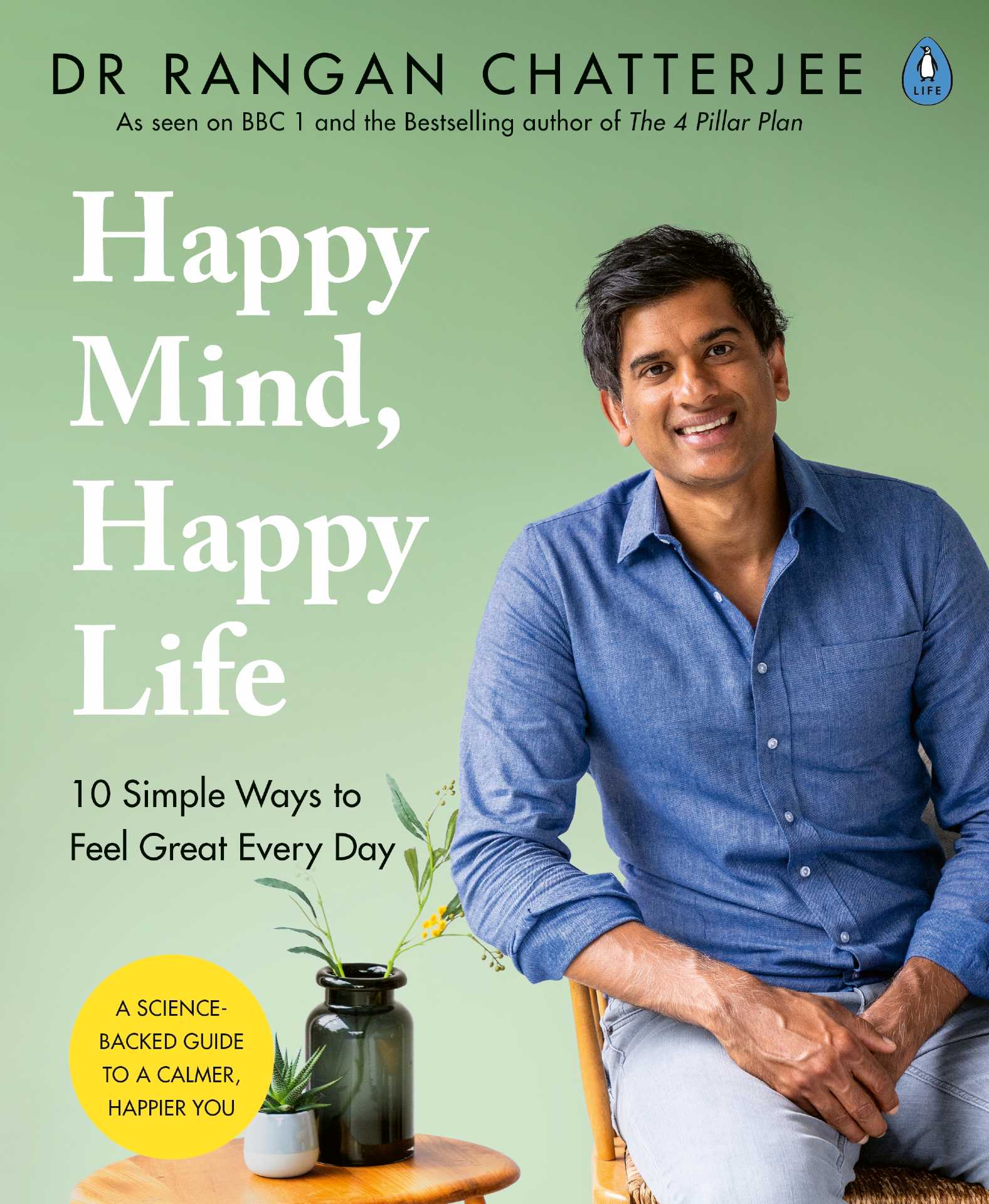This week marks Mental Health Awareness Week, and it couldn’t come at a more poignant time. Record numbers of people are struggling with stress, while a survey by Deloitte reveals that 46% of women feel burnt out, with 30% taking time off work due to mental health concerns. Loneliness is an increasing problem too – according to the Mental Health Foundation, one in four adults feel lonely some or all of the time.
“Modern Life is tough,” says Dr Chatterjee. “It’s stress-inducing, and many of us have jobs where we sit down all day. It’s also easier to have low quality food than it is to cook a good meal.”
Despite his stellar career, Dr Chatterjee readily admits that he has had his own struggles. He’s written four bestsellers, has a weekly a show on BBC radio2 and hosts the number one health podcast in Europe, but he hasn’t always been happy.
“By society’s definition I’m regarded as very successful, but that can be misleading,” he says. “Underneath, there can be a whole world of pain going on. Yes, you might be meeting society’s metric of success, but are you truly happy? For much of my life, I really wasn’t.”
Now though, Dr Chatterjee is calm and content. And in his new book Happy Mind, Happy Life (Penguin Life, £16.99) he reveals how we can all feel less stressed and more in control of our own health, happiness and wellbeing.
“Happiness is something anyone can develop,” he says. “I can’t change the fact you’ll encounter problems and stresses in your day-to-day life, but I can change how you feel about them. I hope to empower people.”
Read on, for Dr Chatterjee’s first simple, stress-busting step to a calmer, more contented, more connected life. We’ll bring you more of his insightful advice next week too.
Create distance from tech
Mobile phones give us huge benefits, from empowering us to work more flexibly to being in closer contact with friends and family. But they are also distracting, and they can erode the boundaries between work and home life. All this elevates our stress levels, plus it can impact our relationships too. Research suggests that increased screen time can leave us feeling lonelier and less connected.
“I don’t think any human can compete with what’s on our phone – it’s the third person in every relationship,” says Dr Chatterjee. “There is something really toxic about trying to catch up with someone when your phone is there as well. A mobile is different from a laptop, which has more physical presence. It’s that half-listening, half being on your phone that’s a problem. There’s even a statistic that we smile 30% less when our phone is present.”
Having your mobile within reach can affect your cognitive powers too. Experiments suggest that even when people avoid the temptation to check their phones, their mere presence reduces available cognitive capacity.
To take back control of our work/life balance and our relationships, Dr Chatterjee recommends setting boundaries around our tech usage.
“Deleting the email app from my phone was a gamechanger, and one of the most impactful things I’ve done for my wellbeing” he says. “It’s almost never the case that an email has to be dealt with absolutely immediately – if there’s an emergency, somebody will phone. I now only look at emails when I’m sitting down at my laptop, when I intentionally decide I want to.”
To boost your productivity, he also recommends putting your phone in a different room while doing work that requires your full concentration.
“Often, we will reflexively look at our phones because they are next to us,” he explains. “And as soon as we get bored or a little frustrated with our work, it is all too easy to pick up the phone and distract ourselves. Just having to get up and move rooms is often all it takes to reduce our usage. When I am in deep flow when writing books, I make sure my phone is nowhere near me and, since doing so, my productivity has improved immeasurably.”
He also carefully controls when he uses his mobile at home, so it doesn’t erode his connection with his wife and children.
“In our household, I’m also super picky that we have no phones out during mealtimes,” he says. “There’s always a reason to quickly send that email, so for us it’s a very strict thing. I’m also try not to be on my phone around my children, because I don’t want to give them the idea that it’s more important.
“One Sunday, when my daughter was four, I was playing with my daughter in the living room and I kept nipping out to the kitchen because there was something going on social media. Then she said, “Daddy, you’re not really here,” and it was like a dagger to my heart. She was spot on. That was a big turning point for me in my relationship with my phone.”
Happy Mind, Happy Life: 10 Simple Ways to Feel Great Every Day is published by Penguin Life (£16.99).
Follow the link for more content from Dr Rangan Chatterjee.

Sophie Barton
Sophie Barton is our Features Editor. She a journalist and editor with 20 years’ experience in the national media, specialising in wellbeing and lifestyle.




